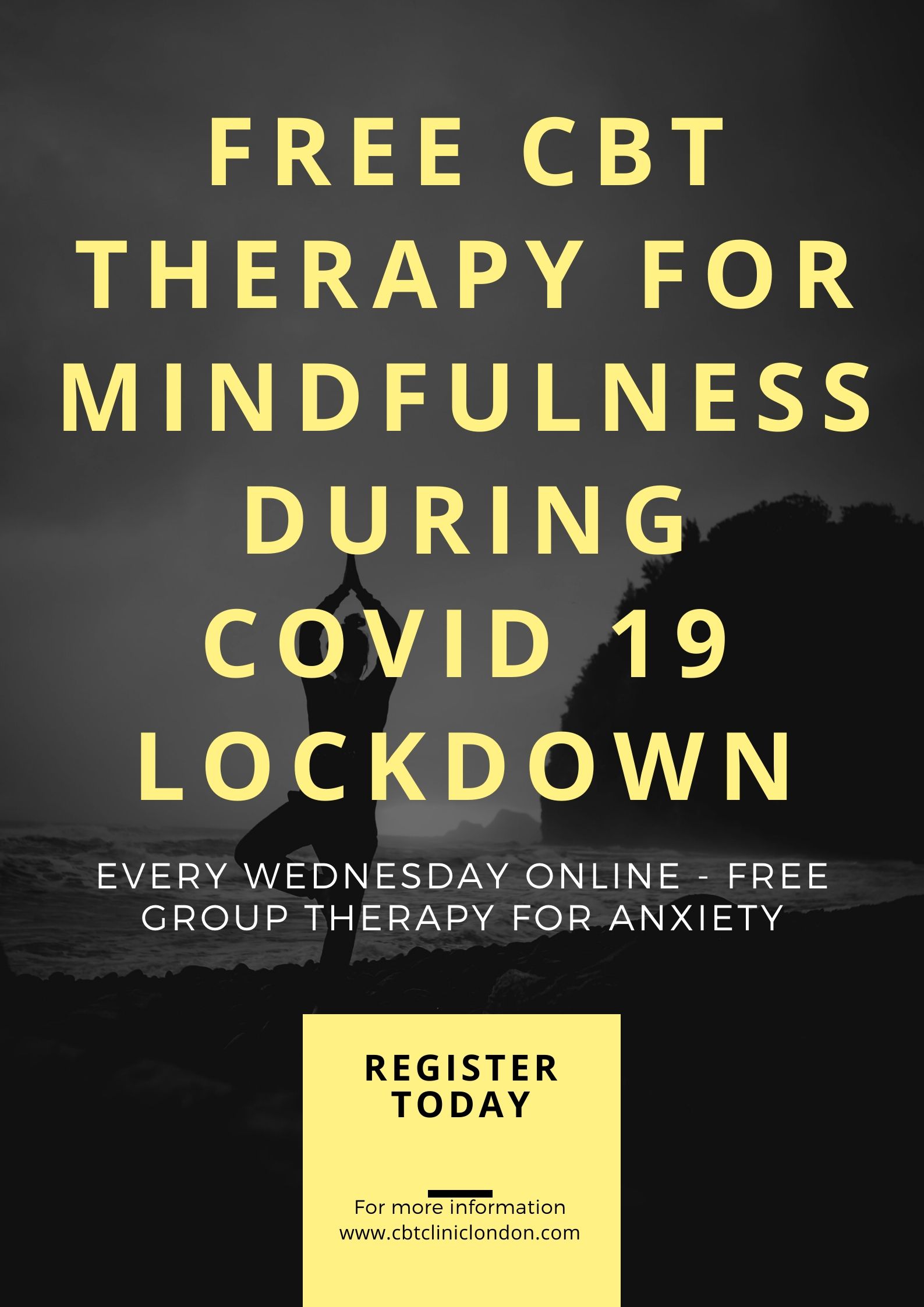
Corona Virus Anxiety London – Free Mindfulness Therapy Online Every Wednesday
Right now (April 2020) we are dealing with a very unusual, disruptive and downright scary issue. Many of us are worrying about how COVID-19 is going to affect our day to day existence, finances, our health and our future.
To feel anxious at this present time is natural. Everyone is processing this event with some level of anxiety, and everyone has different mechanisms for coping with the prospect of the Coronavirus arriving on their doorstep.
Alistair Bond from CBT Clinic London is launching a series of free online “Lunchtime Mindfulness Meditation” Classes starting on 01/04/20 from 12 pm – 1 pm. These classes are open to all and aim to help you to navigate the anxiety caused by the stressful situation we are all facing.
Book A Free Anxiety Therapy Course Online Now – Every Wednesday
Click here to book your FREE online therapy group mindfulness session now on a Wednesday that suits you.
“Everything originates from this moment. It is the only thing we have. Now more than ever, is the time to stay grounded and present”, says Alistair Bond, Mindfulness Meditation Teacher, from The CBT Clinic London.
“We need proven ways to stop our minds from jumping too far ahead into the “scary” future. In these challenging times, we must seek out practices that bring more acceptance to the problematic thoughts and feelings that accompany this new reality, we find ourselves in. I don’t know a better way to do that than engaging in Mindfulness Meditation. This is why I think it is vital for me to provide these FREE classes for anyone who wishes to learn this life-affirming and highly practical skill.”
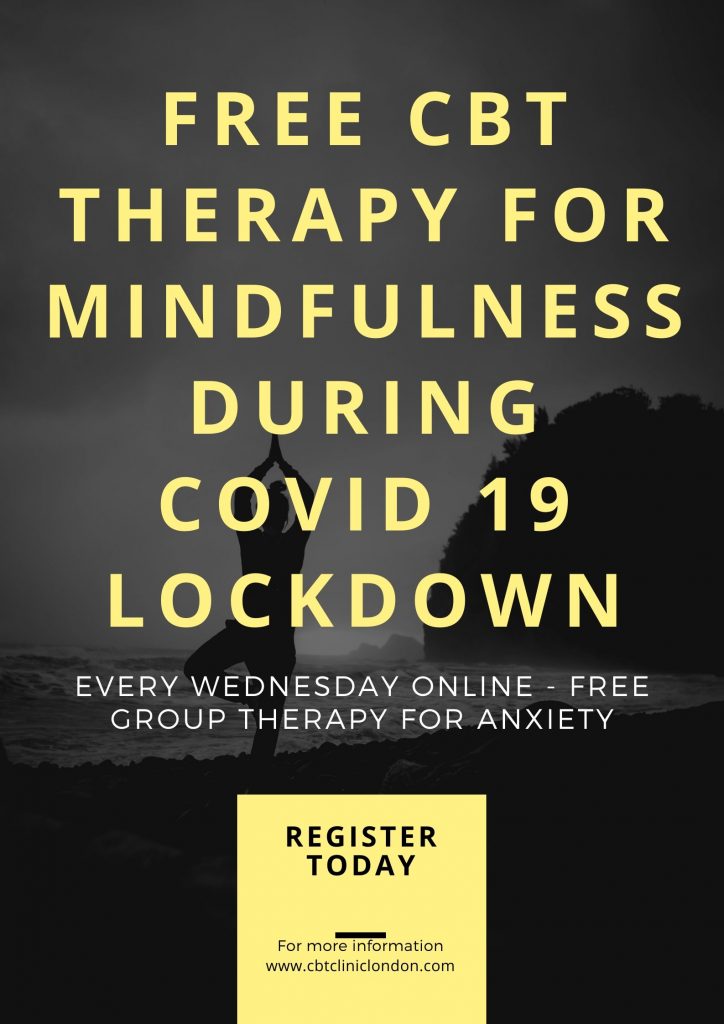
What is anxiety?
Anxiety is a natural response to high levels of stress which is often brought about by feelings of fear about the future. We all experience anxiety differently and with a varying level of ferociousness. The symptoms can build up over time and the focus of our anxiety can change. You may have a constant “sinking feeling” in the pit of your stomach, restlessness and difficulties in concentrating. Whilst others may experience, muscular tension, a racing heart, feeling hot or sweaty or difficulties with sleep.
Anxiety, if left unchecked, can build up to a point where we may experience a Panic Attack. This is where the mental anguish felt transcends into an extreme physical state and can be experienced as feeling faint, heart palpitations, chest pains, dizziness, shortness of breath or dry mouth. Often we misinterpret these symptoms and believe we are going to have a heart attack, suffer a stroke or lose our minds. Which keeps us stuck in a vicious cycle of panic.
How Does Mindfulness Help Anxiety?
In light of what we are now facing with the COVID-19 pandemic, anxiety within us could be created by so many issues. Money worries, isolation and loneliness, worrying about the wellbeing of relatives, food availability, the fear of getting or spreading illness, redundancy, your career/ business, your health or your future goals to name but a few.
There are many ways in which Mindfulness Meditation can help reduce the stress response created in our bodies and minds at times like these. By learning how to connect more deeply to the present, learning how to respond rather than react and bring a greater acceptance to our current experience, we can activate our “self – soothing” mechanism leading to an increased sense of well being inside of ourselves.
In our article about Mindfulness, we explored in more detail about the benefits of Meditation and how connecting to the present and accepting our feelings can help us gain peace within our bodies and minds.
In this unprecedented time, we are being forced to deal with an influx of new feelings and thoughts which are unfamiliar and unwelcome. The ‘noise’ we now may have to filter out is that of our own internal dialogue brought about by these feelings, as well as the constant news updates you may feel compelled to watch.
Mindfulness can help us filter this noise and forces us to carve out some space in our new and temporary regime in order to help us connect to the present and not get caught up in a future we have little or no control over.
Online Guided Meditation for Anxiety
You can join us online for our free Mindfulness Meditation classes starting on 01/04/20 from 12 pm- 1 pm. The 60-minute meditation class will be presented over Zoom (www.zoom.us) and is open to everyone. Zoom software is free to download and just takes a few minutes. To book yourself a place on our free Mindfulness Meditation classes click here.
Learn More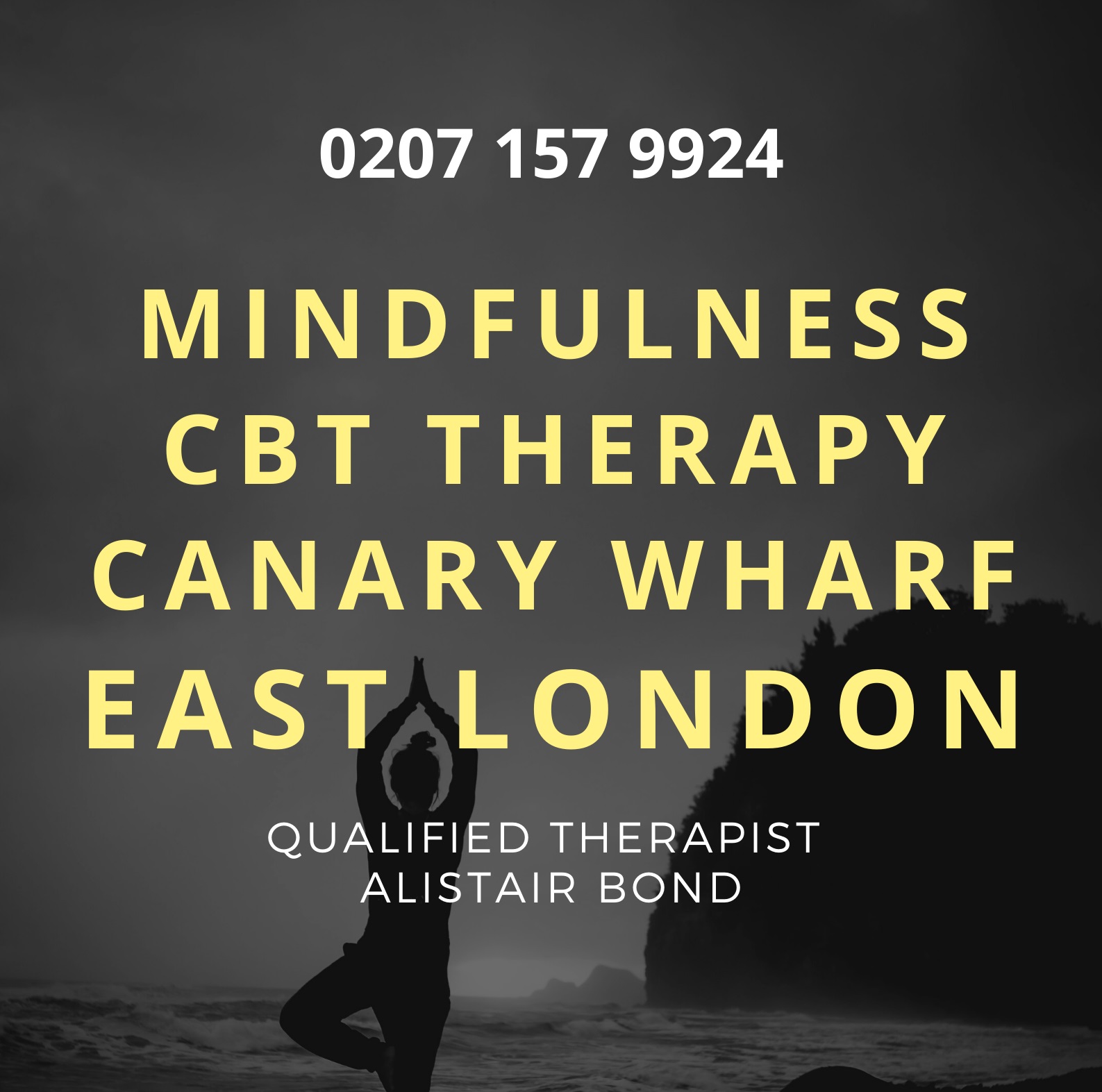
Mindfulness Meditation for Anxiety and Stress
If you are feeling stressed, anxious, have poor concentration, dwell on the past, worry excessively, are trapped in overthinking or are having trouble sleeping, you may find that mindfulness meditation will help you cope better with the pressures that everyday life can bring.
Mindfulness and meditation are separate practices, but they go hand in hand to help alleviate certain thought processes and patterns of behaviour which can cause stress or distress and are often an underlying factor in some health conditions. Mindfulness is essentially the practice of being ‘aware’ of something, such as thoughts, behaviours, feelings or movements, and the world around you. In paying attention to the present, you can make great steps to improve your overall mental well-being.
To help facilitate a state of ‘in the moment’ mindfulness meditation is practised, helping ease the mind of external influences and allowing us to focus inwards. This helps us to identify the thoughts and sensations we are experiencing and see the ‘present’ with more clarity.
Find out more about our London Based mindfulness meditation classes or to book a one-to-one session contact us on 0207 157 9924 or email info@cbtcliniclondon.com.
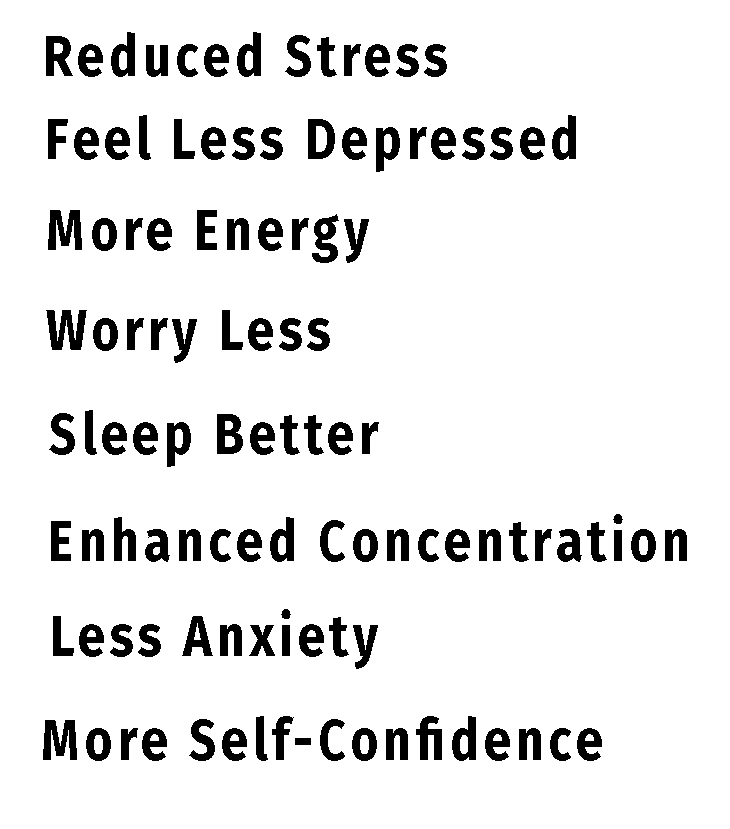
Benefits of Meditation
The benefits of mindfulness and meditation are well documented and scientifically proven. Many of our clients who work in high pressure, professional environments often have psychological challenges that they feel are holding them back or are affecting their quality of life. Issues such as anxiety, insomnia, stress, high blood pressure, low energy levels, depression, headaches & migraines, restlessness, and problems concentrating can all be managed with mindfulness and meditation techniques.
The practice of mindfulness meditation is gaining more and more recognition as a useful tool in combating issues that are born out of modern-day living. In fact, the NHS recognises mindfulness as a way to help improve mental health and well-being in adults and children alike.
Mindfulness and Meditation Courses London
Mindfulness and meditation gives us the chance to step out of our hectic lives and simply observe and listen to ourselves, our thoughts and our bodies whilst feeling at ease in our surroundings.
The CBT Clinic London is based in the Royal Foundation of St. Katherine, London, E14 8DS and we offer a non-religious, non-spiritual, purely practical approach to meditation and mindfulness.
For details about our London mindfulness classes please contact us on 0207 157 9924 or email info@cbtcliniclondon.com.
Private Sessions in Mindfulness Meditation
You can arrange a private one to one session to practice mindfulness meditation which can either take place in the clinic or remotely over Skype, Zoom or Facetime.
Some clients feel more at ease in practising in a one to one format others find practising in a small group suits them better. Either way, we can discuss the best approach to your mindfulness practice so that you feel at ease.
If your lifestyle means that fitting in a regular day or time for a group class can be challenging, then you may find that one to one sessions or the Skype/Zoom/Facetime option would suit you better.
Mindfulness Classes in London
For details about our London mindfulness classes please contact us on 0207 157 9924 or email info@cbtcliniclondon.com.
Learn MoreHow Common is Depression?
[et_pb_section admin_label=”section”]
[et_pb_row admin_label=”row”]
[et_pb_column type=”4_4″][et_pb_text admin_label=”Text”]
Depression CBT Therapy East London Canary Wharf
Despite the fact that being depressed or being in a state of depression feels like one of the most loneliest experiences out there, depression touches a huge number of individuals on a day to day basis. The World Health Organisation estimates that over one hundred and twenty million people suffer with this illness, and with up to twenty percent of people showing symptoms of depression at any one time, this proves that you are not alone.
There are a staggering amount of people across the globe who suffer, and battle, various degrees of depression at one stage or another in their lives however, statistics show that depression itself is much more commonplace in today’s society, and nobody is exempt.#]
Feeling Depressed in 2020 – A Wider Recognition
We often ask ourselves why depression is more common nowadays than it used to be back in, say, the 1940s, and the most prevailing feature is possibly an acceptance of the condition. What with the creativity of social media, particularly over the last decade, there has been a wider acknowledgement of depression, and as such, the word ‘depression’ itself has much less of a stigma attached to it.
This wider recognition has also contributed to a greater understanding of depression, and the levels of depression a person may suffer; no longer is it an illness which is kept under wraps, rather than now, it is a condition which is discussed openly within families, communities, even on your favourite daytime television programmes and soap operas.
Secondly to this stronger affirmation, we have to take a look at society as a whole. With statistics suggesting that ten times more people suffer with major depression than they did some sixty years ago, and in particular, young adults, we cannot ignore the social factors behind the constant increase in diagnoses. This increase can of course be attributed to more people going to their doctor to discuss their feelings and symptoms however, it is the case that our emotional needs are perpetually demanding to be met.
As human beings we have emotional needs, and those who are depressed are usually not getting their emotional needs met and are not receiving the emotional support needed to thrive and prosper. We seem to be living in a society today where social acceptance plays a major role in our every day lives, and all to often individuals are basing their own successes on the successes of those around them. These comparisons, without doubt, can make any character feel as though they are not good enough, that everyone else is better than them, and so on.
While there are a number of factors that can cause depression, such as a bereavement, divorce, abuse, redundancy, or money worries, there are a number of triggers that can often combine to spark the symptoms of depression, and these factors have troubled individuals since the beginning of time.
It has often been said that society breeds depression, and the expectations placed upon us at a very early age is a major contributory factor . Growing on from that, the expectations we place on ourselves through our teenage years and into adulthood, as well as what society deems ‘successful’ is proving to have a huge impact on how we feel about ourselves, making us an anxious breed.
For many, depression can be an overwhelming force; it can force us into a corner, force us to retreat, and force us to close ourselves up to the very people who want to care and help us. These days, having a wider recognition of depression has undoubtedly played a huge part in the acceptance of it, and although depression is by no means a modern condition, the triggers are constantly evolving.
CBT Therapy is the most effective treatment for the symptoms of Depression and you can find more about how we treat Depression and many other common mental health difficulties at the home of CBT Therapy – The CBT Clinic London. www.cbtcliniclondon.com.[/et_pb_text][/et_pb_column]
[/et_pb_row]
[/et_pb_section]
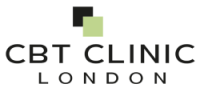
OCD Therapy CBT Private Clinic East London
OCD Therapy CBT Private Clinic East London
Obsessive-Compulsive Disorder or OCD is a common, chronic and long-lasting disorder of the brain in which an individual has uncontrollable, reoccurring thoughts [obsessions] and behaviours [compulsions] that he or she feels the urge to repeat. The disorder can be treated with medication, psychotherapy or a combination of both. Some individuals respond well to treatment, whereas some continue to experience symptoms. Some individuals with OCD can have other mental disorders, such as anxiety, depression and body dysmorphic disorder.
Obsessive-Compulsive Disorder and CBT Therapy Treatment
We welcome telephone enquiries in the first instance, call our offices on 0207 157 9924 we are closed on Sundays. Opening hours: Monday 8am–9pm, Tuesday 8am–9pm, Wednesday 8am–9pm, Thursday 8am–9pm, Friday 8am–9pm, Saturday 10am–5pm.) or you can send us a message via the Contact Form online.
Age, Sex and Obsessive-Compulsive Disorder Diagnosis
Obsessive-Compulsive Disorder can affect adults, adolescents and children. Most individuals are diagnosed by the age of 19, typically there is earlier onset in boys than in girls, but onset after the age of 35 can happen.
It is common for all individuals to double check things at times however those individuals with Obsessive-Compulsive Disorder cannot control their throughts or behaviour, even when such thoughts and behaviours have been recognised as excessive. Individuals with Obsessive-Compulsive Disorder have symptoms of obsessions, compulsions, or both and they can interfere with every aspect of daily life, from work, to school and personal relationships.
OCD Common Obsessions: Obsessions are repeated thoughts, urges, or mental images that can cause the individual anxiety:
- Fear of germs or contamination
- Unwanted forbidden or taboo thoughts, involving sex, religion and harm
- Aggressive thoughts towards the self or others
- Having things symmetrical or in a perfect order
Individuals with OCD do not want to have these thoughts and can find them disturbing. In most cases individuals with OCD realise that these thoughts do not make sense. These obsessions are typically accompanied by intense and uncomfortable feelings such as fear, disgust, doubt, or a feeling that things have to be done in a way that is just right. These obsessions are time consuming and can get in the way of important daily tasks.
Compulsions are repetitive behaviours than an individual with Obsessive-Compulsive Disorder feels the urge to do in response to an obsessive thought:
- Excessive cleaning and/or hand-washing
- Ordering and arranging things in a particular, precise way
- Repeatedly checking on things, such as checking to see if the dor is locked, or that the oven is turned off
- Compulsive counting
Compulsions are behaviours or thoughts that an individual uses with the intention of neutralising, counteracting, or making their obsessions go away. Individuals with OCD realise that this is only a temporary solution but without a better way to cope they often rely on their compulsions as a temporary escape. These compulsions are time consuming and can get in the way of important daily tasks.
These individuals often spend at least an hour a day on such thoughts or behaviours, they do not get pleasure when performing such behaviours or rituals but they may feel brief relief from the anxiety the thoughts may be causing them, and they can experience significant problems in their daily lives due to those thoughts and behaviours. A tic disorder can also be common with some individuals with Obsessive-Compulsive Disorder. Motor tics are sudden, brief and repetitive in nature such as eye blinking, facial movements, shoulder shrugging or head jerking. Common vocal tics can include repetitive throat clearing, sniffing or grunting.
Canary Wharf OCD Private Therapy CBT Clinic
These symptoms can come and go, ease over time or become worse. CBT Therapy is the most effective treatment for the symptoms of OCD and you can find more about how we treat OCD and many other common mental health difficulties with us here in Canary Wharf.

